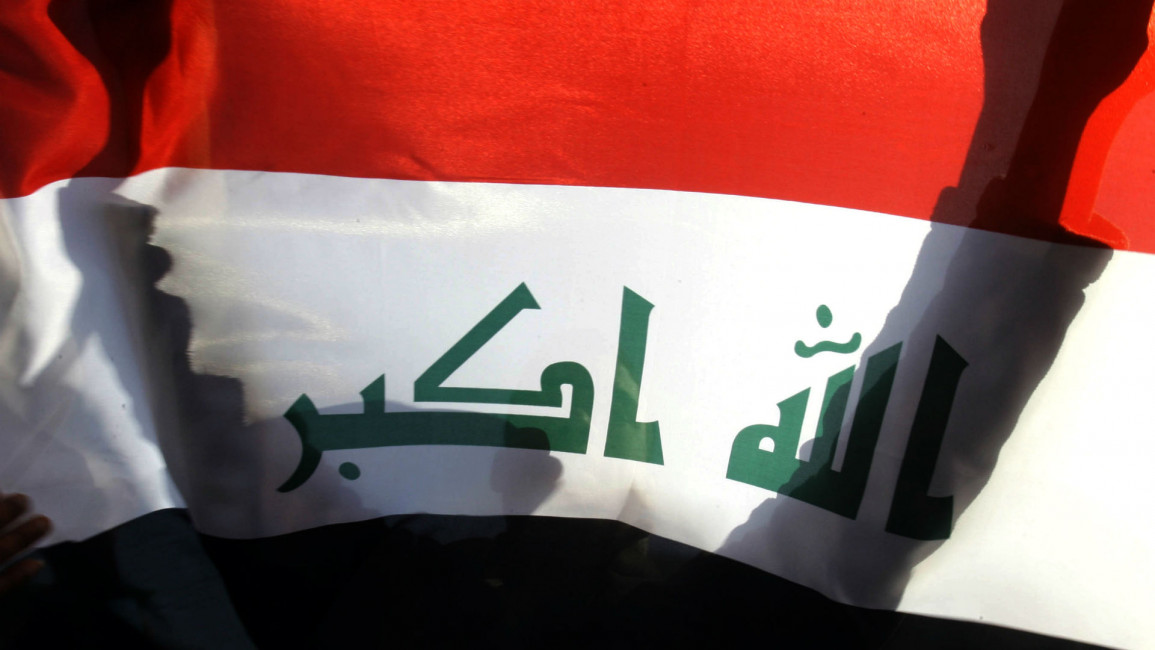
Living in fear: A new threat to Iraq's LGBTQ+ community

On 8 July 2022, the Iraqi LGBTQ+ community reacted in shock to the news that MPs had taken steps to pass legislation that would ban homosexuality in the country.
At present, Iraq’s criminal penal code does not explicitly mention homosexuality, but Article 401 states that “any person who commits an immodest act in public is punishable by a period of detention not exceeding 6 months plus a fine not exceeding 50 dinars or by one of those penalties”.
This law is often used to target the LGBTQ+ community, who already face verbal insults on the street, violence, torture, arrest, and death threats.
So-called ‘honour killings’ of members of the community are considered socially acceptable by many and the law rarely brings the perpetrators of such crimes to justice.
"International rights groups have documented cases of abductions, extrajudicial killings, sexual violence, and the online targeting of LGBTQ+ people by the police and armed groups in Iraq"
Moreover, Article 3 in Iraq’s Personal Status Law refers to marriage as a union between a man and a woman to create children, effectively removing the possibility of same-sex marriage.
“Instead of holding perpetrators accountable, the Iraqi government has failed to protect its citizens,” Amir Ashour, the founder of the LGBTQ+ group IraQueer, told The New Arab.
“In fact, they have been the perpetrators of many of the crimes committed against LGBT+ people, and other marginalised groups”.
International rights groups have documented cases of abductions, extrajudicial killings, sexual violence, and the online targeting of LGBTQ+ people by the police and armed groups in Iraq.
This includes groups within the Popular Mobilisation Forces (PMF), a collection of armed Shia militias under the nominal control of the Iraqi prime minister.
“Iraqi is currently being led by a group of fundamentalist terrorists who are leading armed groups and spreading fear and violence instead of protecting the human rights of Iraqis and building a country for all citizens, including LGBT+ citizens,” Ashour said.
His group has been trying to mobilise the local and international community to put pressure on MPs to stop the bill from passing.
Many LGBTQ+ people who spoke to TNA anonymously said that the new law would effectively sanction violence against them.
Some also believe that MPs have chosen the timing for the new law as a distraction from the chaos and deadlock of Iraq’s political scene, as the ruling elites lead the country into an uncertain future.
Muqtada Al-Sadr, a powerful Shia cleric, resigned from the parliament in June and ordered all 74 of his lawmakers – around a quarter of the parliament – to step down after his attempts to form a government failed.
|
|
In the past, Sadr has repeatedly made homophobic statements, including blaming the Covid-19 pandemic and monkeypox on the LGBTQ+ community.
“MPs are trying to distract the public from the real issues facing Iraqi citizens,” Ashour told The New Arab.
“Iraqis have been living with financial issues, a lack of services like water and electricity, and a collapsing political system, and instead of facing the public and promising them to build a better future these MPs are betraying the public by creating fake issues that in fact make the lives of Iraqis even worse,” he added.
Many, including Ashour, feel that Iraq is becoming a more violent society where discrimination is not only tolerated but normalised.
Talal al-Hariri, the secretary general of the liberal secularist October 25 movement, also believes that the proposed law is an attempt by corrupt MPs to distract the public from their failure to form a national government capable of providing public services and alleviating the economic crisis.
"It's unbelievable to think how our lives could soon be if MPs pass this law. It means more violence, more attacks, and more killings"
“We in the October 25 movement condemn this draft law because it is against the values of human rights, we are awaiting the international community’s voice on this issue to deter these backward policies and protect the rights of LGBT+ and all other minorities,” he told TNA.
“The pressure on the Iraqi government to protect the LGBT+ community is not at the level required. Personally, I received dozens of threats just because I advocated for the community’s rights, that is why, instead, I am active online through social media platforms to demand the freedom that LGBT+ people should have,” Hariri added.
In addition to violence, LGBTQ+ people face a range of daily discriminatory practices in Iraqi society, such as the inability to find jobs in the public and private sector, social isolation, and being stopped at checkpoints for their appearance.
Muntadher Ali, 23, (not his real name), from Basra told The New Arab that he felt shocked when he heard that Iraqi MPs had taken steps to ban homosexuality.
“It’s unbelievable to think how our lives could soon be if MPs pass this law. It means more violence, more attacks, and more killings. I think that under this law the government is legalising armed groups to kill us, but indirectly without holding them to account,” he said.
He also echoes the views of other rights advocates who say that Iraqis want their politicians to provide jobs, health services, clean water, and electricity rather than focusing on issues such as homosexuality, which is insignificant compared to the failings of the ruling elite.
“All that we ask is for freedom or at least letting us live in peace. I do not want to be ‘meat’ for militias or armed groups, or even being watched by authorities,” Ali said.
While all countries aspire to have diversity in their society, the Iraqi government has failed to protect minorities, including the LGBTQ+ community, he said.
“Since 2003 until now minorities like Christians, Mandaeans, Yazidis, and others have fled their homes seeking a better and safer life due to the sectarian tensions of 2006-7 and successive governments' failures,” he added.
“I feel I am second class in the community just for being different”.
The New Arab contacted several Iraqi MPs for comment but did not receive a reply.
Azhar Al-Rubaie is a freelance journalist based in Iraq. His writing focuses on a variety of issues, including politics, health, society, wars, and human rights.
Follow him on Twitter: @AzherRubaie



